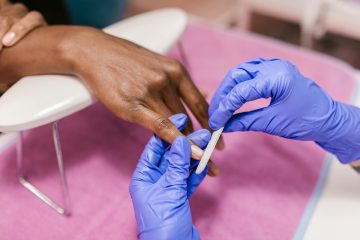
A highly contagious bacterial illness, strep throat causes a sore throat and itchiness. Contagiousness can begin a few weeks before symptoms appear. Whether you are taking antibiotics will determine when you should stop.
Strep Throat is a throat infection. Tonsils are also affected. This is caused by bacteria known as group A streptococcus.
Learn more about how strep is spread and how long it can be contagious. Also, learn how you can reduce your risk of contracting the disease.
How to spread
GAS bacteria are spread by contact with respiratory drops from someone with strep. Droplets can be spread by a person who has strep throat when they cough or sneeze.
You can get strep throat if you touch your nose, mouth or eyes after being exposed to these droplets. You can also contract the infection if:
- Share food or beverages with someone who is sick.
- Contact with a contaminated item, such as a doorknob or faucet
It can take 2 to 5 days to show symptoms if you have strep.
The contagious phase
You will remain contagious if you are treated with anti-bacterials until you have been taking antibiotics at least 24 hour. You’ll be contagious 2 to 3 week after the infection if you don’t get treatment.
Incidence
Most often, strep throat affects children of school age. According to Centers for Disease Control and Prevention CDC (Trusted Source), up to 30% of children who have a sore neck may also have strep. Only 10% of adults who have a sore neck are infected with strep.
Adults who spend a lot of time around children under the age of 18 are at a greater risk for strep. Being in a crowded place, like a school or daycare center, can increase the risk of getting strep.
It is possible to get strep at any time, but the incidence tends to be higher in late fall and early spring.
Recurring infections
You can still get strep if you have had it before. Some children get recurring throat strep. They contract the disease more than once a year.
Your doctor may suggest tonsil removal in the case of repeated infections to reduce the frequency of strep infections. The procedure is known as a Tonsillectomy. You can still contract strep even after the tonsils are removed.
Symptoms
The following symptoms are associated with strep throat:
- A sudden sore throat
- Pain when swallowing
- fever above 101degF (38.5degC).
- Little red spots on your roof of the mouth
- The tonsils may be red, swollen and have white spots and/or streaks of pus.
- swollen lymph nodes in your neck
- headache
- nausea or vomiting
A rash is also known as scarlet-fever. The toxin produced by GAS bacteria is responsible for the rash. The symptoms of scarlet fever are usually mild. It’ll still need antibiotics to avoid complications like rheumatic disease and kidney damage.
Treatment
You should consult your doctor if you suspect you have strep. Your doctor will test for and start treatment. Penicillin and amoxicillin can be used to treat strep. Other antibiotics may be prescribed if you are allergic.
Antibiotics can help you recover faster. Antibiotics can also reduce the time you are contagious.
After taking antibiotics for 24 hours, most people are no longer infectious. If your doctor has not told you otherwise, be sure to complete your antibiotic course.
Your doctor may also recommend OTC medications to treat your symptoms, such as Ibuprofen, Motrin, Advil, or Acetaminophen, Tylenol.
Recovery
You may be able to recover from strep after receiving antibiotic treatment.
Untreated illnesses will cause a longer recovery time and increase your chances of complications. Without treatment, you may still be contagious even after you feel better, for up to several weeks.
How to prevent the spread of
Use these tips to prevent the spread of strep throat.
- Regularly and properly clean your hands. Use an alcohol-based hand cleaner or warm water and soap.
- If you or anyone in your home has strep throat, clean surfaces throughout your home. Bacteria can survive on household items such as tabletops and doorknobs for short periods.
- Wash your hands often if you are living with someone who has strep or if you care for them. Avoid touching your nose, mouth, or face.
- Contact with strep throat sufferers should be avoided until they have been treated for 24 hours.
- Do not share food or drinks with anyone else. Avoid sharing other personal items such as toothbrushes.
- Cover your mouth if you have strep. Always carry disposable tissues. Sneeze instead into the crooks of your elbow if you don’t carry a tissue.
- You should not go to work or school if you have strep. You should not leave your home for 24 hours after you begin taking antibiotics.
Black Line on Nail: Melanoma or Bruise?
February 11, 2026Quick Methods to Treat Butt Acne Fast
February 6, 2026Stages of Shingles: Timeline From Beginning to End
February 6, 2026
Leave a reply Cancel reply
You must be logged in to post a comment.
-
Famotidine side effects: What you need to know
August 5, 2025 -
Low Maintenance Short Haircuts
June 30, 2023 -
Fact Check: Will CBG Get You High?
March 24, 2021





